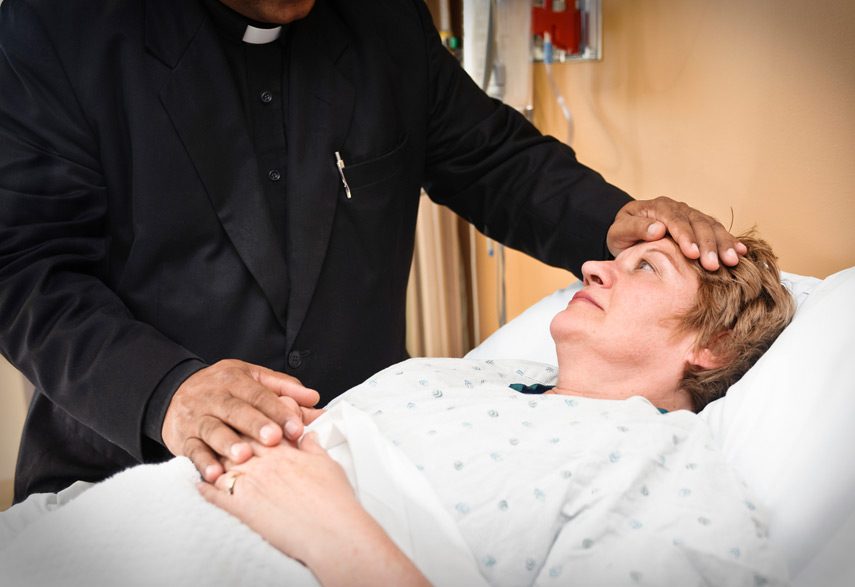

Spiritual services are offered to hospice patients facing difficult spiritual questions near the end of their life. For spiritual support to be effective, spiritual advisors must provide support that aligns with the patient’s beliefs.
Overview of Spiritual Support
Spiritual support is typically provided by chaplains associated with local religious organizations and spiritual leaders. Their goal is to help hospice patients find peace and comfort as they near the end of their life.
The type of spiritual support offered will depend on the patient’s personal faith. The beliefs taught by spiritual advisors must align with the patient’s beliefs about the afterlife, miracles, death, and other topics. In addition, spiritual leaders must develop a spiritual support strategy that will meet the patient’s spiritual needs.
Receiving a serious or terminal diagnosis may cause patients to struggle with their faith and hope. Spiritual distress can also lead to the following conditions:
- Alcohol or drug abuse
- Distress, or loss of inner peace
- Anxiety or depression
- High blood pressure
- Sense of isolation
- Difficulty coping with illness symptoms
Personalized spiritual support can help hospice patients address and prevent these issues.
The Benefits of Spiritual Services
A terminal illness often raises difficult questions in patients nearing the end of their life. Spiritual support may help patients with the following:
- Finding peace and comfort
- Gaining freedom from regret
- Courage in the face of death
- Developing a hopeful perspective
- Improved quality of life

How to Prepare For Spiritual Services
Before meeting with a chaplain or spiritual advisor, hospice patients should think about what kind of spiritual support they would like. Each hospice patient should let their hospice care team know if there’s a special request they’d like to make or if there’s a local spiritual leader they would like to meet with.
What to Expect From Spiritual Services
To learn about the hospice patient’s preferences, the hospice chaplain may ask about the patient’s:
- Religion
- Beliefs about life
- Practices or rituals
- Prayer or meditation habits
- Spiritual questions
- Loss of faith
- Concerns about death or the afterlife
When planning treatment or creating a support plan, the spiritual advisor will take into account the following:
- Meeting frequency with a spiritual leader
- Ways to honor the patient’s beliefs during treatment
- Ways to support the patient’s spiritual needs
- Assistance finding a support group with patients who have similar beliefs
- Planning other types of assistance, such as meditation or exercise
Results of Spiritual Services
Spiritual support may help the patient experience relief right away, or they may need ongoing spiritual support. Patients and their families should speak to their spiritual support guide about what is effective and what isn’t.
Duration of Spiritual Services
Spiritual support is designed to help patients overcome the spiritual distress that comes at the end of life. Support should be provided for as long as the patient seeks peace and comfort.
Spiritual support is a low- to no-risk treatment option for hospice patients experiencing spiritual distress. Services should be catered to the patient’s spiritual needs, preferences, and expectations. The wrong approach could cause harm and worsen symptoms of spiritual distress. Conducting a spiritual assessment is a key step to ensuring patients receive the right kind of spiritual support.
